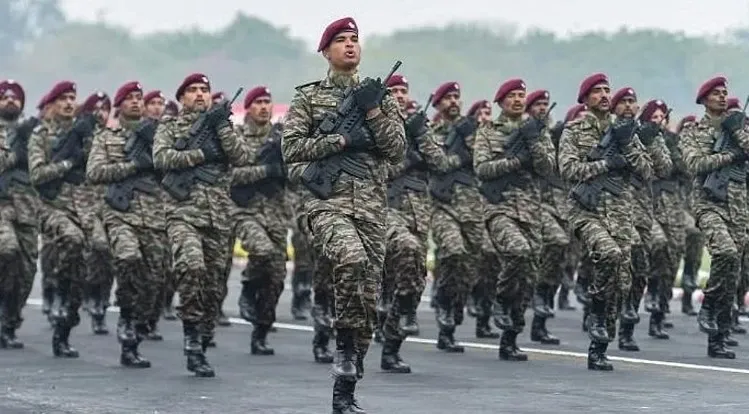Is CISF Set to Increase Its Personnel by 14,000 Each Year?

Synopsis
Key Takeaways
- MHA approves increase of CISF personnel to 220,000.
- Annual recruitment of 14,000 personnel planned.
- Focus on enhancing security in critical sectors.
- Efforts to improve women's representation in the force.
- New units established at key national locations.
Chandigarh, Aug 7 (NationPress) The Ministry of Home Affairs (MHA) has sanctioned an elevation in the strength of the Central Industrial Security Force (CISF) from 162,000 to 220,000 personnel, aiming to bolster the economic advancement of the nation, as per officials from the ministry.
Providing insights, CISF unit Commander Lalit Pawar, who oversees security for the Punjab and Haryana Civil Secretariat in Chandigarh, mentioned that this expansion will also pave the way for new job opportunities, especially through upcoming recruitment campaigns.
In the year 2024, 13,230 personnel were brought on board, and the recruitment process for an additional 24,098 is currently in progress.
The CISF is projected to incorporate approximately 14,000 personnel annually, introducing fresh talent into the police force and enhancing its readiness.
These recruitment initiatives are also anticipated to draw a larger pool of female candidates, supported by the force's progressive policies that aim to elevate the presence of women across all levels.
Pawar highlighted that in the previous year, the CISF has established seven new units within its security division, including deployments at significant sites such as the Parliament House Complex, Ayodhya airport, NTPC Coal Mining Project in Hazaribagh, ICMR-National Institute of Virology in Pune, Buxar Thermal Power Project, Jawahar Thermal Power Project in Etah, and the Beas Satluj Link Project in Mandi.
Additionally, two new units were introduced within the fire division at the Parliament House Complex and Jawahar Thermal Power Project in Etah.
The CISF unit Commander asserted that as India’s economy reaches new heights, this expansion will enhance CISF’s deployment across vital sectors, including the rapidly growing aviation and port industries, thermal power plants, nuclear facilities, and critical infrastructures like hydropower plants and prisons in Jammu and Kashmir.
With the reduction of left-wing extremism in states such as Chhattisgarh, new industrial centers are expected to rise, necessitating a stronger CISF presence to ensure comprehensive and reliable security for these establishments, he stated.
This expansion underscores the increasing significance of the CISF in protecting essential national assets, in alignment with India’s ongoing economic development and infrastructure progress.









